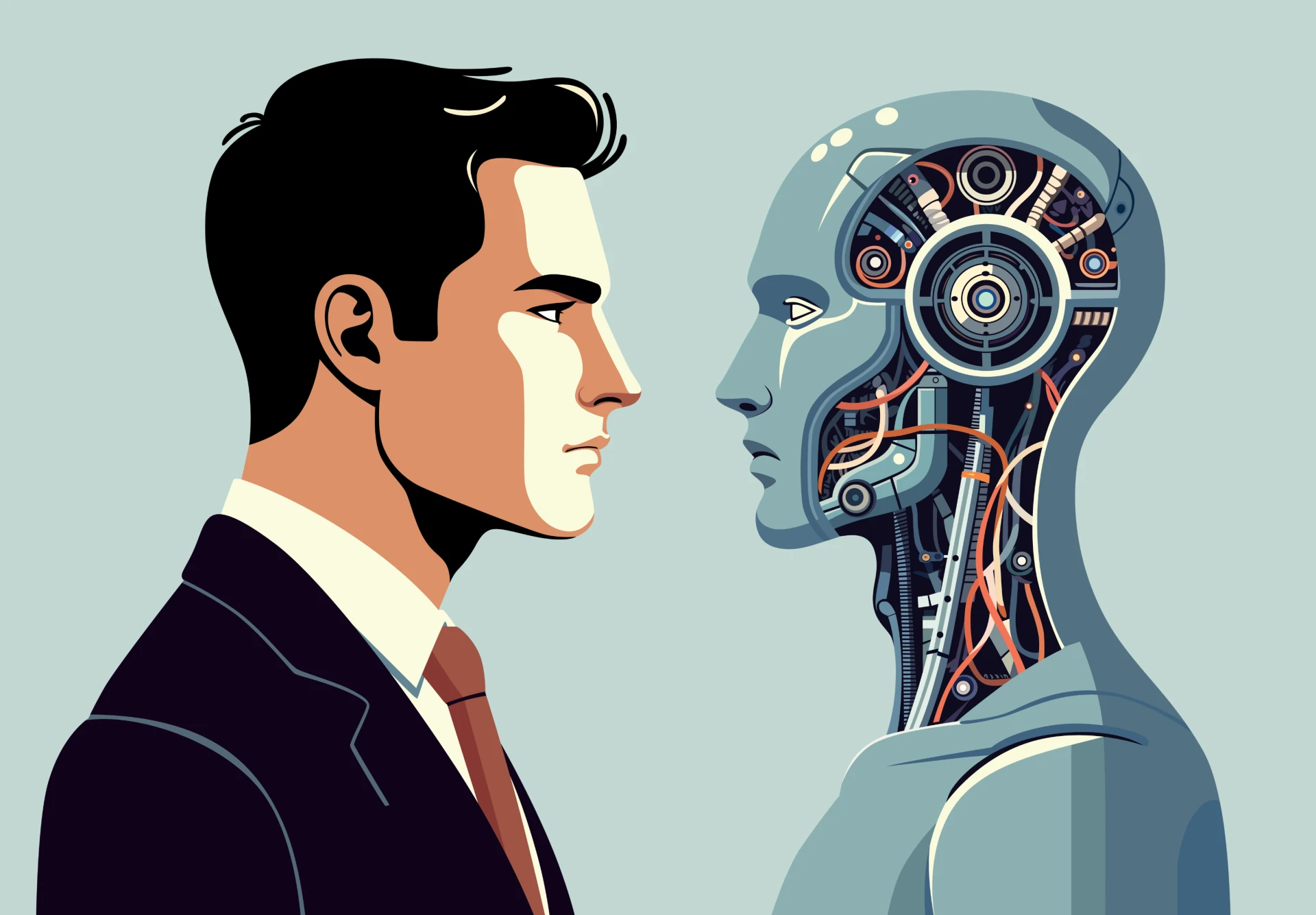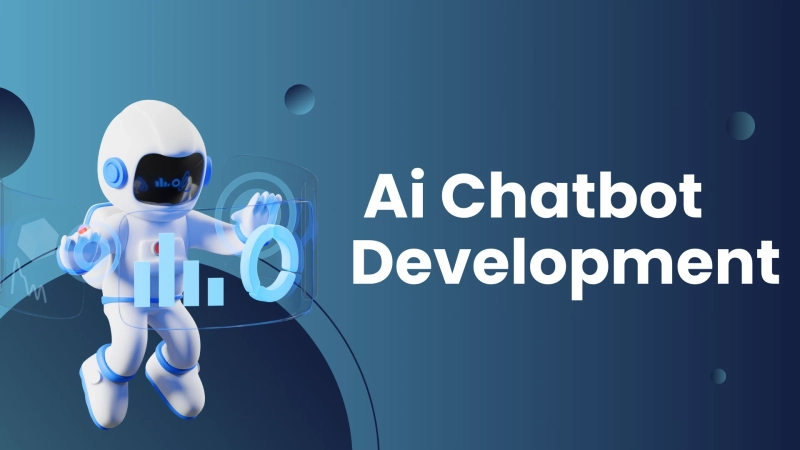In 2025, enterprise AI chatbot development is no longer a niche investment—it’s a necessity. From customer support and employee onboarding to sales automation and data retrieval, AI-powered chatbots are transforming how organizations operate and scale. As chatbot capabilities grow more sophisticated thanks to advances in large language models (LLMs), natural language processing (NLP), and generative AI, enterprises need powerful, flexible, and secure platforms to build and manage their intelligent assistants.
But with dozens of tools flooding the market, which chatbot development platforms actually deliver enterprise-grade performance?
This blog dives into the best platforms for enterprise AI chatbot development in 2025, comparing their strengths, use cases, integrations, and scalability. Whether you're looking to build a customer-facing virtual agent or an internal AI assistant, these platforms lead the pack.
Why Enterprise-Grade Chatbots Demand Specialized Platforms
Building an enterprise-grade chatbot isn’t just about scripting responses or plugging in an LLM. You need:
- Data security & compliance (GDPR, HIPAA, SOC 2)
- Multi-channel deployment (web, mobile, WhatsApp, Teams, Slack, etc.)
- Advanced NLP and multi-language support
- Integration with CRMs, ERPs, HRMS, and custom APIs
- Customization and scalability
- Analytics & performance tracking
- Fallback mechanisms and human handoffs
These requirements go beyond what many low-code or consumer-focused chatbot tools can handle. Below are the platforms that meet these challenges head-on.
1.Sparkout Tech Solutions Inc.
Best for: Tailor-made enterprise ai chatbot development across any platform Overview Sparkout Tech Solutions isn’t just a platform — it’s a technology partner that helps enterprises build fully customized AI chatbot solutions. Whether you're looking to integrate with existing systems, deploy on-prem for maximum security, or build from scratch using tools like Dialogflow, Rasa, or LLMs, Sparkout provides end-to-end development and support tailored to your enterprise needs.
Key Features:
- Platform-agnostic development (Dialogflow, Rasa, Azure Bot, Watson, OpenAI, and more)
- Custom workflows, API integrations, and business logic implementation
- On-prem, cloud, or hybrid deployment options
- AI chatbot performance monitoring and optimization
- Human-in-the-loop support, multilingual training, and compliance handling
- White-labeled chatbot solutions for resellers and SaaS providers
Use Cases: BFSI customer engagement bots, HR onboarding assistants, multilingual support agents, e-commerce AI chat, healthcare automation bots, and more.
Pros:
- 100% custom-built to your requirements
- Deep expertise across all major chatbot platforms
- Consulting + development + deployment = one-stop solution
- Ongoing support, updates, and optimization services
Cons:
- Requires discovery and consultation before project kickoff (not a plug-and-play tool)
- Cost depends on project complexity
2. Microsoft Azure Bot Service + Bot Framework Composer
Best for: Enterprises already in the Microsoft ecosystem
Overview Microsoft’s Azure Bot Service, combined with the Bot Framework SDK and Composer tool, offers a comprehensive solution for building enterprise bots integrated with Teams, Office 365, Dynamics 365, and more.
Key Features:
- Deep integration with Microsoft 365 services
- Supports LLMs via Azure OpenAI Service
- Adaptive dialogs and rich SDK capabilities
- Easy deployment via Azure infrastructure
- Enterprise-grade security and compliance
Use Cases: IT helpdesk bots, internal employee assistants, healthcare triage bots.
Pros:
- Seamless Microsoft stack integration
- Highly customizable via code or low-code tools
- Ready-to-use templates for faster development
Cons:
- Requires Azure familiarity
- Developer-heavy for advanced use cases
3. IBM Watsonx Assistant
Best for: Regulated industries and enterprises prioritizing explainable AI
Overview IBM Watsonx Assistant builds on IBM’s AI and cloud strength to provide a secure, enterprise-ready chatbot solution. It’s ideal for industries with compliance needs, like finance, insurance, and healthcare.
Key Features:
- Intuitive dialog editor with fallback and disambiguation logic
- Hybrid cloud deployment (public, private, on-prem)
- Supports Watson Discovery for knowledge search
- LLM integration via Watsonx.ai for generative capabilities
- Pre-built industry templates
Use Cases: Insurance claims bots, healthcare support agents, B2B service portals.
Pros:
- Strong focus on data privacy and explainability
- Watsonx platform supports foundation model fine-tuning
- On-prem hosting available
Cons:
- UI and workflows less intuitive than newer platforms
- Higher setup complexity
4. Rasa Pro (Open Source + Enterprise Add-ons)
Best for: Fully customizable, on-prem AI agents
Overview Rasa is a Python-based open-source chatbot framework designed for developers and AI teams that want full control. Rasa Pro extends it with enterprise capabilities like multi-language NLU, analytics, and SOC 2 compliance.
Key Features:
- Open-source core with advanced intent classification
- Custom pipelines and policies
- Native integrations with Slack, Twilio, REST APIs
- Runs on Kubernetes, Docker, or your infrastructure
- Now supports LLMs via Rasa Labs connectors
Use Cases: Highly specialized bots with strict data privacy needs, internal tools, customer support automation.
Pros:
- No vendor lock-in
- Highly customizable
- Ideal for data-sensitive industries
Cons:
- Requires engineering resources
- No low-code UI; config-heavy
5. Yellow.ai
Best for: Multilingual customer support and hyperautomation
Overview Yellow.ai is an enterprise-grade platform offering Dynamic AI agents powered by LLMs. It enables both customer-facing and employee-facing bots with multilingual, voice, and automation capabilities.
Key Features:
- No-code/low-code chatbot builder
- AI-powered intent detection and auto-training
- 135+ language support
- Voice AI and IVR capabilities
- Integrated human-agent live chat
- LLM support via OpenAI, Google PaLM, and others
Use Cases: Retail support bots, HR bots, voice bots, BFSI customer experience
Pros:
- Strong voice + chat support
- Rapid deployment and visual workflows
- Enterprise integrations via prebuilt connectors
Cons:
- May require additional customization for niche use cases
6. Kore.ai XO Platform
Best for: End-to-end automation and AI agent orchestration
Overview Kore.ai is an enterprise-focused conversational AI platform built for automating business interactions across channels and functions.
Key Features:
- AI workflow builder for end-to-end process automation
- Supports chat, voice, email, and virtual IVR
- LLM orchestration and hybrid bot architecture
- 40+ prebuilt enterprise connectors (SAP, Salesforce, Zendesk, etc.)
- Customizable NLP and domain-trained models
Use Cases: Contact center automation, HR bots, virtual banking assistants
Pros:
- Unified experience across channels
- Deep analytics dashboard
- Built-in AI security and governance
Cons:
- Feature-rich, but pricing may reflect that
- Requires training to fully leverage
7. Zendesk Advanced Bots (Powered by OpenAI)
Best for: AI chatbots for customer support teams
Overview For enterprises already using Zendesk, the new AI-powered Advanced Bots feature offers a seamless way to deploy GPT-enhanced support chatbots.
Key Features:
- Powered by OpenAI GPT for fast, natural responses
- Integrated with Zendesk tickets, macros, and help centers
- Smart suggestions and self-service automations
- Live agent fallback with context handoff
- Multilingual support
Use Cases: E-commerce support, ticket triage, help center automation
Pros:
- Native integration with Zendesk
- Quick time to value for support teams
- Automates common workflows out of the box
Cons:
- Limited to Zendesk ecosystem
- Not ideal for custom app development
Remember, the chatbot platform you choose will be the backbone of your customer experience or operational efficiency. Evaluate for scalability, integration flexibility, AI support, and cost efficiency to future-proof your investment.
Looking to build a custom AI chatbot tailored to your enterprise? Partner with an expert Enterprise AI chatbot development company and bring your virtual assistant vision to life—from concept to production. Let’s talk.


